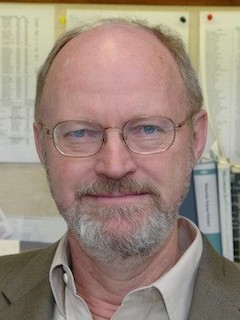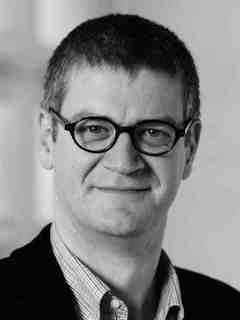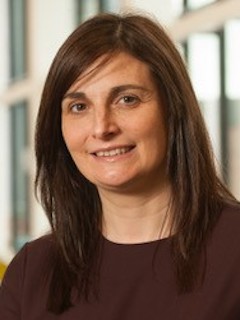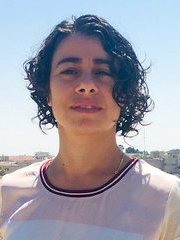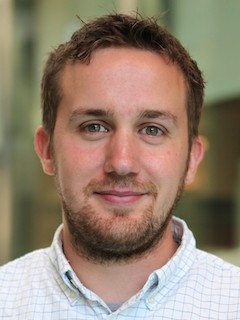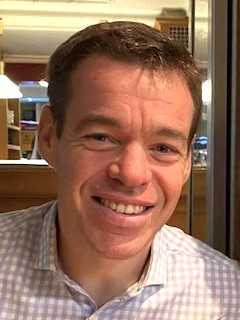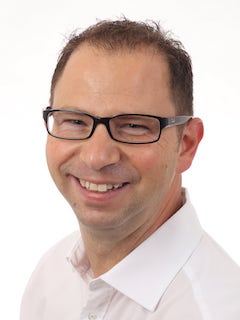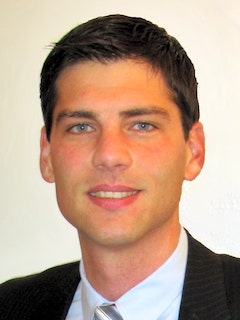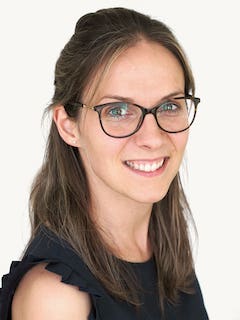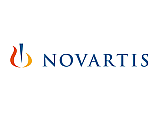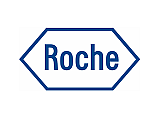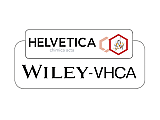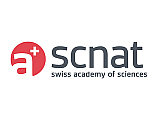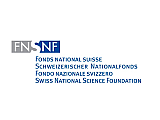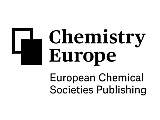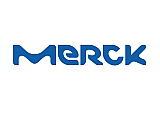|
|
Prof. Robert H. Grubbs, CaltecRobert H. Grubbs received his B.S. and M.S. Chemistry from the University of Florida at Gainesville in 1963 and 1965. Ph.D., Chemistry, from Columbia University, New York, in 1968. NIH Postdoctoral Fellow, Chemistry, Stanford University, 1968-69. He is now the Victor and Elizabeth Atkins Professor of Chemistry at the California Institute of Technology, Pasadena, California, and faculty member since 1978. He was a faculty member at Michigan State University from 1969 to 1978. |
|
Prof. Christophe Copéret, ETH Zürich Lecture Topic: Learning from Single-Site Catalysis and NMR Spectroscopy Prof. Christophe Copéret was trained in chemistry and chemical engineering at the École Supérieure de Chimie Physique Électronique (CPE) de Lyon. He received a PhD in chemistry from Purdue University in 1996, for his research on the synthesis of complex molecules via Pd-catalyzed carbonylation reactions, supervised by Prof. E. Negishi. |
|
Prof. Eva Hevia, University of Bern Eva Hevia received both, her MSci degree in Chemistry and her Ph.D. degree, from the Universidad de Oviedo (Spain) in 1998 and 2002 respectively. Her doctoral studies were under the supervision of Professor Victor Riera and Dr Julio Perez. |
|
Prof. Anat Milo, Ben Gurion University Anat Milo received her B.Sc./B.A. in Chemistry and Humanities from the Hebrew University of Jerusalem in 2001, M.Sc. from UPMC Paris in 2004, and Ph.D. from the Weizmann Institute of Science in 2011. Her postdoctoral studies at the University of Utah focused on developing physical organic descriptors and data analysis approaches for chemical reactions. |
|
Prof. Todd Hyster, Princeton University Lecture Topics: Photoenzymatic Catalysis” and “Merging Small Molecule Catalysis with Enzymes in Chemical Synthesis Todd Hyster is native of Minnesota and did his undergraduate studies at the University of Minnesota. He obtained his Ph.D. from Colorado State University, where he worked under the mentorship of Prof. Tomislav Rovis. As a graduate student, Todd developed methods for preparing nitrogen-heterocycles using Rhodium-catalyzed C–H activation. As part of this work, he was a Marie Curie Fellow in the labs of Tom Ward at the University of Basel, where he developed an artificial metalloenzyme to catalyze an asymmetric C–H activation reaction. |
|
Prof. Josep Cornella , Max-Planck-Institut für Kohlenforschung in Mülheim an der Ruhr
Josep (Pep) Cornella graduated in chemistry in 2008 from the University of Barcelona. After completing his MSc thesis, he moved to the United Kingdom to pursue doctoral studies in the group of Prof. Igor Larrosa (Queen Mary University, London). In 2012, Pep moved back to Catalunya, where he joined the group of Prof. Ruben Martin (ICIQ) as a Marie Curie Postdoctoral Fellow. There, he developed novel transformations involving Ni-catalyzed C–O bond activation and carbon dioxide insertion into organic molecules. In 2015, he obtained a Beatriu de Pinós Fellowship to join the group of Prof. Phil S. Baran at the Scripps Research Institute in La Jolla, California. During his time at Scripps, he worked on the discovery and implementation of new transformations based on the concept of “redox-active esters” as readily available partners for Ni- and Fe-catalyzed C–C bond forming reactions. In 2017, Pep was appointed as a Group Leader in the Department of Organometallic Chemistry at the Max-Planck-Institut für Kohlenforschung in Mülheim an der Ruhr to create and lead the Sustainable Catalysis Laboratory. |
The focus of his research is on materials simulations for industrial-related problems and on the application of machine learning/artificial intelligence technologies to chemistry and materials science problems. https://www.zurich.ibm.com |
|
Dr. Edouard Godineau, Syngenta Crop Protection AG Lecture Topic: Green & Sustainable Chemistry, the industry perspective Edouard Godineau received his PhD from the University of Bordeaux in 2007, with Prof. Yannick Landais. After a post-doctoral stay with Prof. A. Fürstner at the Max-Planck-Istitut für Kohlenforschung in Mühlhein a.d.R, he joined Syngenta Crop Protection in 2009 as a process chemist. |
|
Dr. Thomas Carl, Siegfried AG Lecture Topic: From lab to plant; process performance through new technologies and data management Thomas Carl studied chemistry at the Universities of Stuttgart (Germany) and Reading (UK). He was awarded a PhD degree by the University of Basel for his research on electron transport through DNA under the supervision of Prof. Bernd Giese. |
|
Dr. Markus Fischer, Merck Sigma Aldrich Production GmbH Lecture Topic: Development of green industrial processes Markus Fischer received his diploma in chemistry from the Ludwig-Maximilians-University Munich under the supervision of Prof. Dr. Paul Knochel. His doctoral studies focused on the development of light-harvesting materials for organic solar cells. He received his PhD from the University of Ulm under the mentorship of Prof. Dr. Peter Bäuerle. |
|
Dr. Audrey Langlois, Novartis Lecture Title: Application of Pd-catalyzed transformations in the manufacture of LSZ102, a selective estrogen receptor degrader Audrey Langlois obtained her PhD in organic chemistry from the University of Geneva (Switzerland), where she worked on asymmetric catalysis in the group of Prof. E. Peter Kündig. In 2012, she moved to Harvard University (Cambridge, USA) to perform her post-doctoral studies in the group of Prof. Andy G. Myers, working on the design of a fully-synthetic route to macrolide antibiotics. Audrey returned to Switzerland in 2013 to start her career as a process chemist. First, at SpiroChem, an ETH-Zürich spin-off and since 2014 at Novartis within the Chemical and Analytical Development department. Over the past years, Audrey has supported several drug development projects, ranging from classical small molecules to new chemical modalities.
|
Dr. Lucie Lovelle, Novartis Lecture Title: The Development Journey of the Bruton’s Tyrosine Kinase Inhibitor LOU064 (remibrutinib) Lucie Lovelle is a Fellow in the Chemical and Analytical Development organization of Novartis. Lucie earned her PhD in Organic Chemistry from the University of Montreal (Canada), where she worked, under the supervision of Prof. André B. Charette, on the diastereo- and enantioselective synthesis of 1,2,3-trisubstituted cyclopropanes. In 2010, she moved to ETH Zürich (Switzerland) to complete her post-doctoral studies in the group of Prof. Ryan Gilmour, leveraging from the gauche effect to design and synthesize various fluorinated organocatalysts. Lucie was recruited a year later by Janssen, pharmaceutical companies of Johnson & Johnson (Schaffhausen, Switzerland) to work on, among other projects, the development of bedaquiline, an approved marketed drug to treat multi-drug-resistant tuberculosis (MDR-TB). Since 2015, Lucie is working at Novartis in process research & development for drug candidates across indications and phases of clinical development. |
